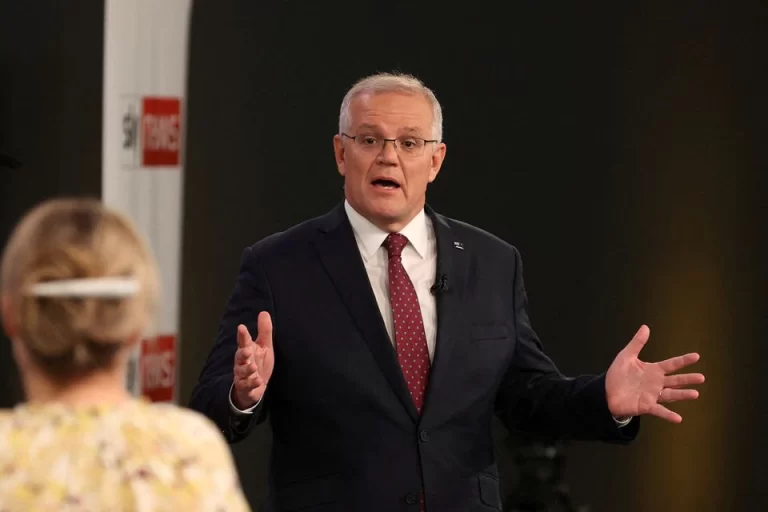
SYDNEY, (Reuters) – Concern about China will impact the way four in ten Australians vote in this month’s national election, according to a university survey that also found voters saw the major political parties as equally well placed to handle the relationship with Beijing.
Australian Prime Minister Scott Morrison has put his government’s hawkish stance on China at the forefront of the election campaign. But a little over a week out from the May 21 vote, his conservative Liberal Party is on the back foot, accused by the opposition Labor Party of bungling diplomacy and making Australia “less secure” after China signed a security pact with Pacific island neighbour Solomon Islands.
The Australia-China Relations Institute (ACRI) at the University of Technology in Sydney (UTS) said Australians who say China policy will impact the way they vote are also more likely to express alarm and apprehension about Australia-China relations.
The university’s survey of 2,000 people nationally found 40% said the government’s management of China policy was an issue that would impact their vote.
Of these, 78% expressed mistrust of the Chinese government, and 84% said Beijing was willing to use trade to punish Australia over political disagreements.
The survey was conducted March 18-30, a period when the Solomon Islands security pact with China was publicly revealed, worrying Western allies who are concerned it could provide a gateway for a Chinese military presence in the Pacific.
Elena Collinson, senior researcher at UTS:ACRI, said in the report that growing concern about regional instability has been a focal point of the election campaign.
Australians are evenly split between the Liberal Party (36%) and Labor Party (35%) as best placed to handle China policy, the survey found.
There was a six-point rise from a similar survey in 2021 in the number of Australians who see China as a security threat (73%), and an 11-point rise in support for Australian engagement in military conflict between the United States and China over Taiwan (56%).
The findings “serve to underline that this is the most challenging period Australian diplomacy has faced since Japan threatened the East Asian order in the 1930s,” the report said.






